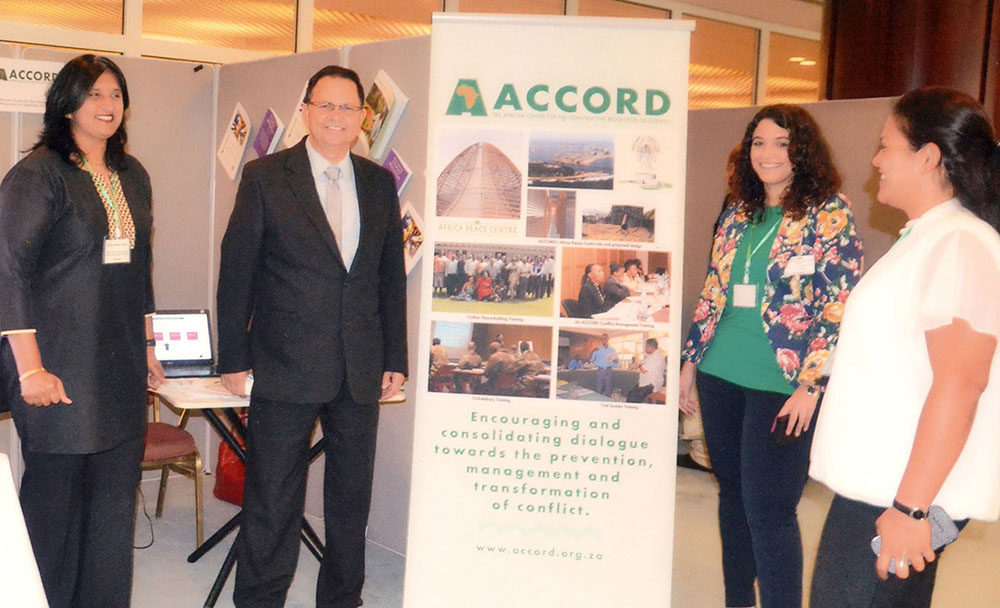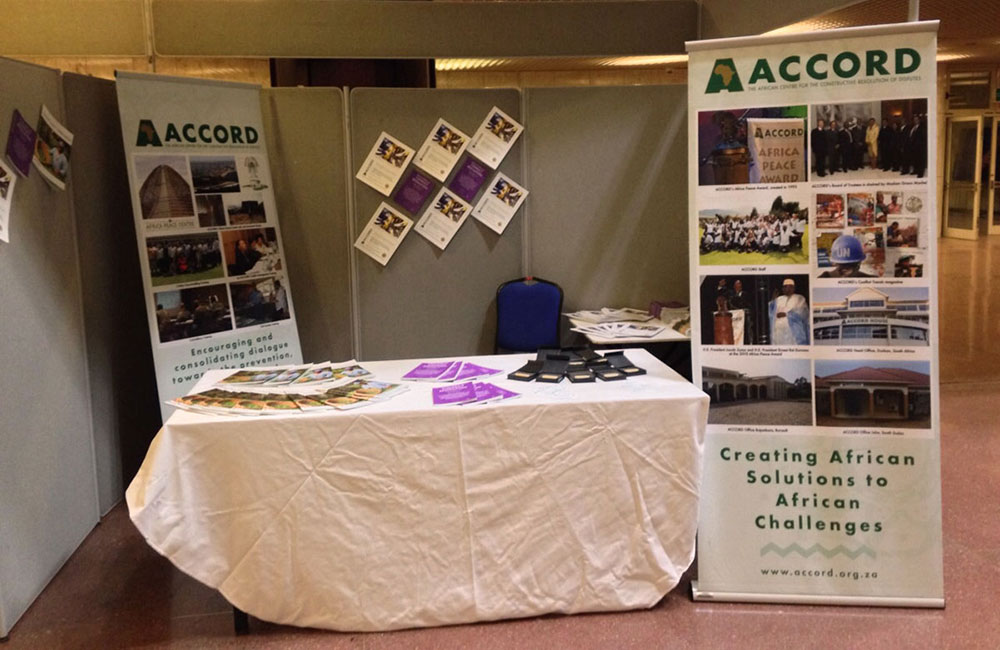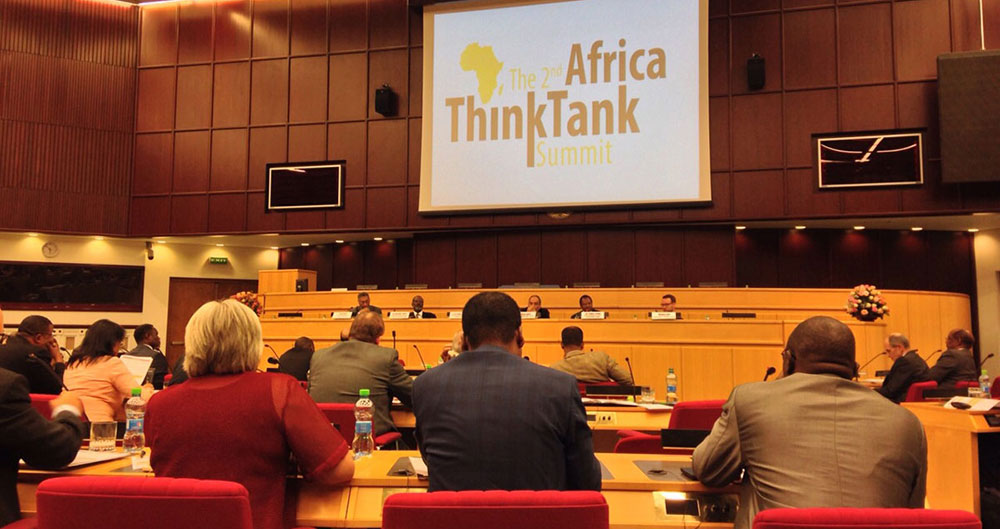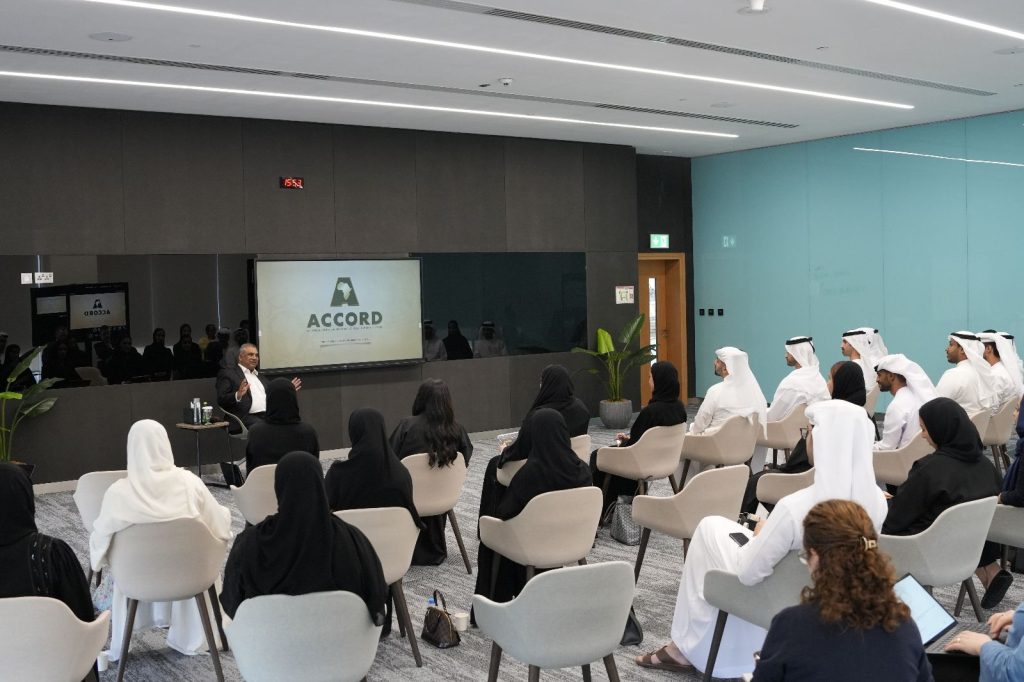A delegation from ACCORD have attended the 2nd African Think Tank Summit, held in Addis Ababa, Ethiopia from 6-8 April. The event was attended by over 60 think tanks, with participants from 30 countries. The first Summit was held in Pretoria, South Africa in February 2014, and was organised by the African Capacity Building Foundation, African Leadership Center, Friedrich-Ebert-Stiftung, Konrad-Andenauer-Stiftung and the Think Tanks and Civil Societies Program, University of Pennsylvania.
The theme for the 2nd Summit was The Rise of African Think Tanks. ACCORD presented on bridging the divide between theory and practice. The aim of the Summit was to both reflect and share. Presenters from a range of African Think tanks showcased their organisations’ best practices and innovations for shaping key policy issues, mobilising resources, engaging policymakers, the media and public, and assessing and communicating value and impact. Themes dominating the discussions included: what is a think tank, how to maintain autonomy from funding, sustainability and how think tanks do business. With ACCORD already an active policy partner on the continent the Summit offered an opportunity to both share experiences from ACCORD’s rich 23 history and learn from the paths blazed by others. The holding of a 2nd Summit is a key milestone on the path towards a pan-African think tank network that can support the continent’s continued development.


The 2014 Summit noted some memorable quotes:
“African think tanks… remain an integral component in the quest for poverty reduction and sustainable development. They offer the dialogue space required to tackle critical policy development challenges.”
– Dr. Frannie A. Leautier, Former Executive Secretary, African Capacity Building Foundation
“Africa’s Think Tanks are potential incubators for leading ideas for Africa’s transformation, thus providing invaluable space for a rare form of intellectual leadership and intergenerational exchanges. The challenge… is to translate all of this into meaningful change for the continent.”
– Dr.Funmi Olonisakin, Founding Director, African Leadership Centre.
“…policymakers and civil society throughout the developed and the developing world face the common problem of bringing expert knowledge to bear on government decision-making.”
– Dr. James G. McGann, Senior Fellow and Director, Think Tanks and Civil Society Program, University of Pennsylvania.
“Soft power is determined not only by economic strength, but also by the ability of states to produce knowledge and influence thinking. The number of Think Tanks in a country is indicative of this.”
– Dr. Jakkie Cilliers, Executive Director, Institute for Security Studies.







